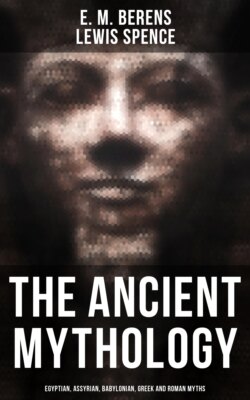Читать книгу The Ancient Mythology: Egyptian, Assyrian, Babylonian, Greek and Roman Myths - Lewis Spence - Страница 140
На сайте Литреса книга снята с продажи.
The Terror of Eclipse
ОглавлениеThe terror of eclipse of the sun or moon was a very real one to the ancient Babylonians. The tablet with the history of the seven evil gods or spirits, though much mutilated, gives us a hint of the attack made by them upon the moon. They dwelt in the lower part of heaven, and were rebellious in heart. Shaped like leopards, serpents, and angry beasts of prey, they went from city to city on the wings of an evil wind, destroying and smiting. And into the heaven of Anu they burst, but Bel and Ea took counsel, and set Sin the moon, Shamash the sun, and Ishtar the planet Venus in the lower part of heaven to govern and control it along with Anu. No sooner had this been accomplished than the seven evil spirits fiercely attacked the moon-god. But Bel saw the peril of Sin, and said to his attendant, the god Nusku, "Carry word of this thing to the ocean, to the god Ea." Ea heard the message, and called his son, the god Merodach. "Go, my son Merodach," quoth he, "enter into the shining Sin, who in heaven is greatly beset, and expel his enemies from heaven." It is impossible to decipher the context from the mutilated remains of the tablets, but we may take it for granted that the pious efforts of Merodach were rewarded with success.
An eclipse to most primitive peoples means that the sun- or moon-god has either met with disaster or has withdrawn his face from his worshippers. The monthly waning of the moon made the ancients believe that it would be entirely blotted out unless the god was pacified. Thus if no eclipse took place it was considered that the efforts of priests and people had prevailed; otherwise they were held to have failed, and panic ruled supreme. In a certain prayer Sin is adjured not to withhold his face from his people. The day of the monthly disappearance of the moon is called a day of distress, but a season of jubilee followed upon the advent of the new moon next day.
